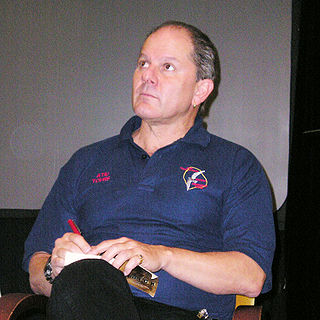A Quote by Teju Cole
The banality of evil transmutes into the banality of sentimentality. The world is nothing but a problem to be solved by enthusiasm.
Quote Topics
Related Quotes
... In contrast to the "banality of evil," which posits that ordinary people can be responsible for the most despicable acts of cruelty and degradation of their fellows, I posit the "banality of heroism," which unfurls the banner of the heroic Everyman and Everywoman who heed the call to service to humanity when their time comes to act. When that bell rings, they will know that it rings for them. It sounds a call to uphold what is best in human nature that rises above the powerful pressures of Situation and System as the profound assertion of human dignity opposing evil.
The mystery lies in the here and now. The mystery is: What is one to do with oneself? As you get older you begin to realize the trick time is playing, and that unless you do something about it, the passage of time is nothing but the encroachment of the horrible banality of the past on the pure future. The past devours the future like a tape recorder, converting pure possibility into banality. The present is the tape head, the mouth of time. Then where is the mystery and why bother kicking through the ashes? Because there is a clue in the past.
It is indeed my opinion now that evil is never “radical,” that it is only extreme, and that it possess neither depth nor any demonic dimension. It can overgrow and lay waste the whole world precisely because it spreads like fungus on the surface. It is “thought-defying,” as I said, because thought tries to reach some depth, to go to the roots, and the moment it concerns itself with evil, it is frustrated because there is nothing. That is its “banality.” Only the good has depth and can be radical.
As we have come to understand the psychology of evil, we have realized that such transformations of human character are not as rare as we would like to believe. Historical inquiry and behavioral science have demonstrated the "banality of evil" -- that is, under certain conditions and social pressures, ordinary people can commit acts that would otherwise be unthinkable.




































